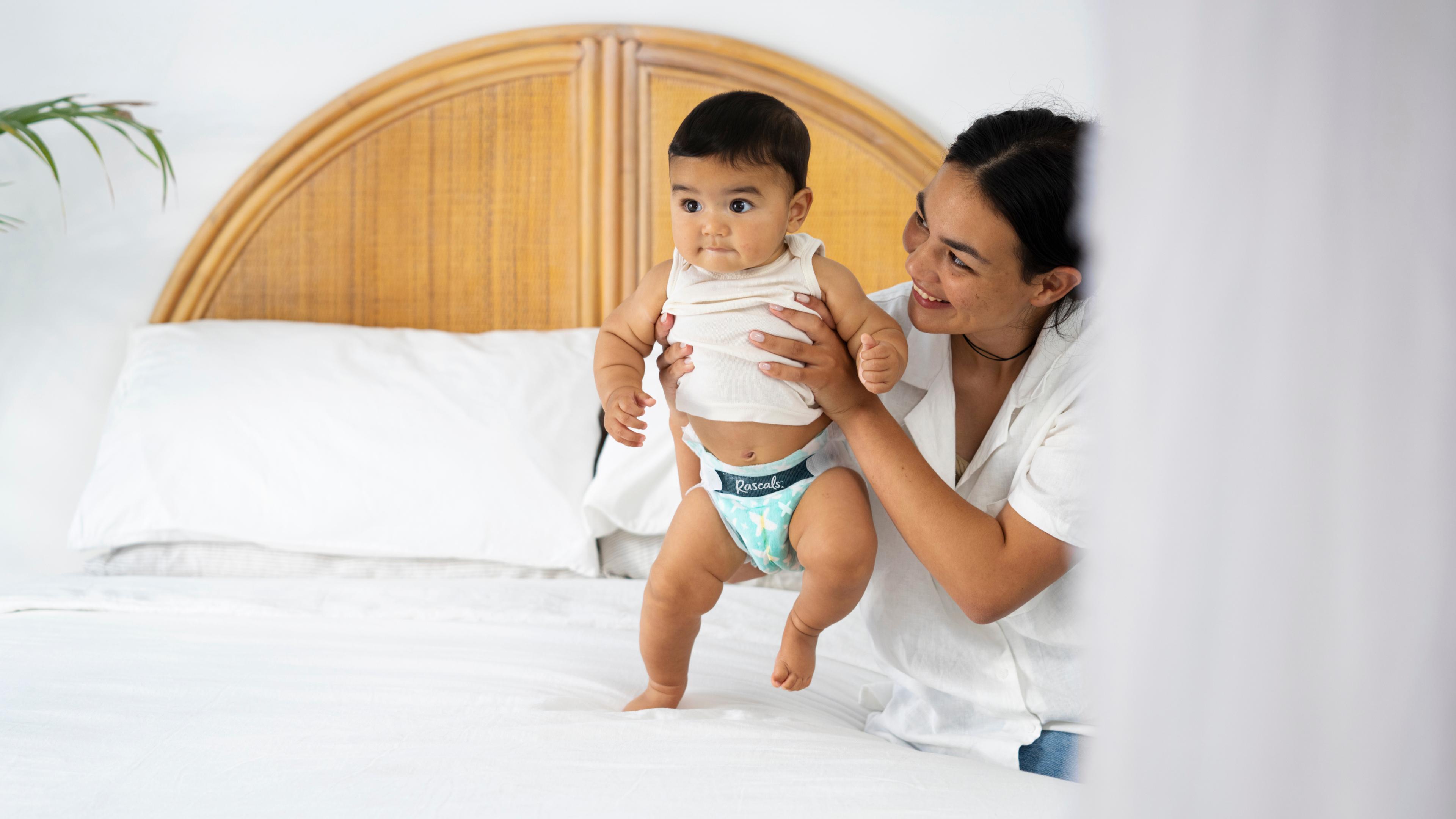What is Nappy Rash and how to Treat it
Nappy rash is a common concern and manageable condition for parents with babies. Nappy rash, or nappy dermatitis, is a rash in the nappy area. Your baby’s skin may look red, irritated, raw and even a bit spotty at the edge of the rash. The severity of nappy rash can range from mild irritation to extremely sore.
While nappy rash is a common baby skin condition that can often be treated at home, seeing your little one in pain is difficult and the problem can be quite persistent. So how can parents best prevent nappy rash in the first place, or best manage it once it appears?
How to Treat Nappy Rash:
Nappy rash can come from a number of different sources: Whether it’s the introduction of solids into your babies diet, prolonged exposure to moisture from wet nappies or due to individual skin sensitivities. Recognising these different sources helps parents to be proactive in prevention and treatment ensuring a more comfortable experience for their little ones. The following tips outline how best to treat nappy rash. If nappy rash persists or worsens, consulting with a healthcare professional is recommended to identify and address any underlying issues.
Keep the area clean and dry
Preventing nappy rash is often much easier than trying to stop it once it after the fact. The best and most simple way to keep nappy rash from appearing is to keep your baby in clean, dry nappies. Change your babies nappy every two to three hours is a good rule of thumb for change-frequency. If you find that your little one has soiled their nappy at any point, it’s important to change it right away.
When cleaning the area, pay special attention to any folds in the skin. Bacteria can easily get trapped here, causing rashes and irritation. Use an unscented baby wipe or wetted cloth to clean the nappy area. Opt for a baby wipe that is delicate on sensitive baby skin such as Rascals Sensitive Wipes which are made with a 99% Natural Formula and are dermatologically certified to be safe on sensitive skin.
Some parents find applying a gentle, unscented lotion with each nappy change can ensure that the area stays healthy. Just be sure the skin is completely clean and dry before applying any lotions or ointments.
Frequent nappy change routine
Frequent nappy changes can prevent irritations. When a babies nappy is left unchanged for long periods of time, the moisture makes little ones skin susceptive to irritation. More frequent changes, leads to less rashes and irritation and we recommend to change the nappy as soon as it becomes soiled, or is full with urine. When there is a small amount of urine you don’t need to change the nappy right away - this is because Rascals Fast-Dry Layer absorbs and traps liquid in seconds, which keeps the skin dry and helps prevent against rashes.
Continue to generously apply a nappy ointment, and water can also be a great gentle solution for cleaning the area – just avoid using soap as it can dry out the skin and cause further irritation.
Allow the skin to completely air dry before putting on a new nappy. You may also like to try ‘no nappy time’ to let skin completely dry and breathe whilst at home with your little one.
Find baby nappy products that are safe on sensitive skin
When it comes to choosing nappy products, it’s important to look out for brands that are made with your baby’s sensitive skin in mind. Our baby products are made with Zero Nasties and Hypoallergenic and dermatologist tested, our diaper/pant materials are gentle on delicate skin, Rascals Premium Nappies, Nappy Pants & Wipes contain 0% lotions, latex or fragrance. Rascals are proud to be certified by world leading organizations to guarantee our products are gentle on delicate skin, including:
- OEKO-Tex Standard 100 (free from 100+ harmful substances!)
- Dermatest Seal of Approval
- PETA Vegan & Cruelty Free
- Sustainable Pulp
Nappy rash can also be caused by sensitive to other products, whether thats ointments, moisturisers or soaps. Start by ensuring that all the products you’re using are unscented.
Choose a Nappy for Sensitive Skin
For more information, read our nappy ingredients here.
Choose a Wipe for Sensitive Skin
Choosing a baby wipe that is soft and gentle on your baby’s delicate skin is an important step in preventing nappy rash. Rascals Sensitive Wipes are Hypoallergenic for sensitive skin, made with extracts of chamomile, aloe, and pomegranate to help hydrate and soothe skin. Our wipes are made with Zero Nasties and containing 0% lotion, latex or fragrance.
Rascals Sensitive Wipes were designed for your little ones delicate skin, certified:
- Dermatest Guaranteed
- Certified by PETA as cruelty free and vegan
- Made with natural cleansers, conditioners and moisturisers to nourish skin, our sensitive wipes are ultra gentle on delicate skin.
- EWG (Environmental Working Group) Score of 1.20/10
FAQs: Nappy Rash
Treat nappy rash by keeping the area clean, using nappy rash creams with zinc oxide, providing nappy-free time, and ensuring frequent nappy changes.
Nappy rash can occur due to prolonged moisture. Treat it by applying nappy rash creams and allowing the area to air out frequently.
Yes, cleanse the area gently, apply a thick layer of nappy rash cream, and ensure nappies are changed promptly to facilitate quicker healing.
Changing nappies every 2-3 hours or immediately after soiling is crucial in effectively treating nappy rash and preventing further irritation.
Yes, natural remedies like coconut oil or oatmeal baths may help soothe nappy rash. Consult a paediatrician before trying new remedies.

